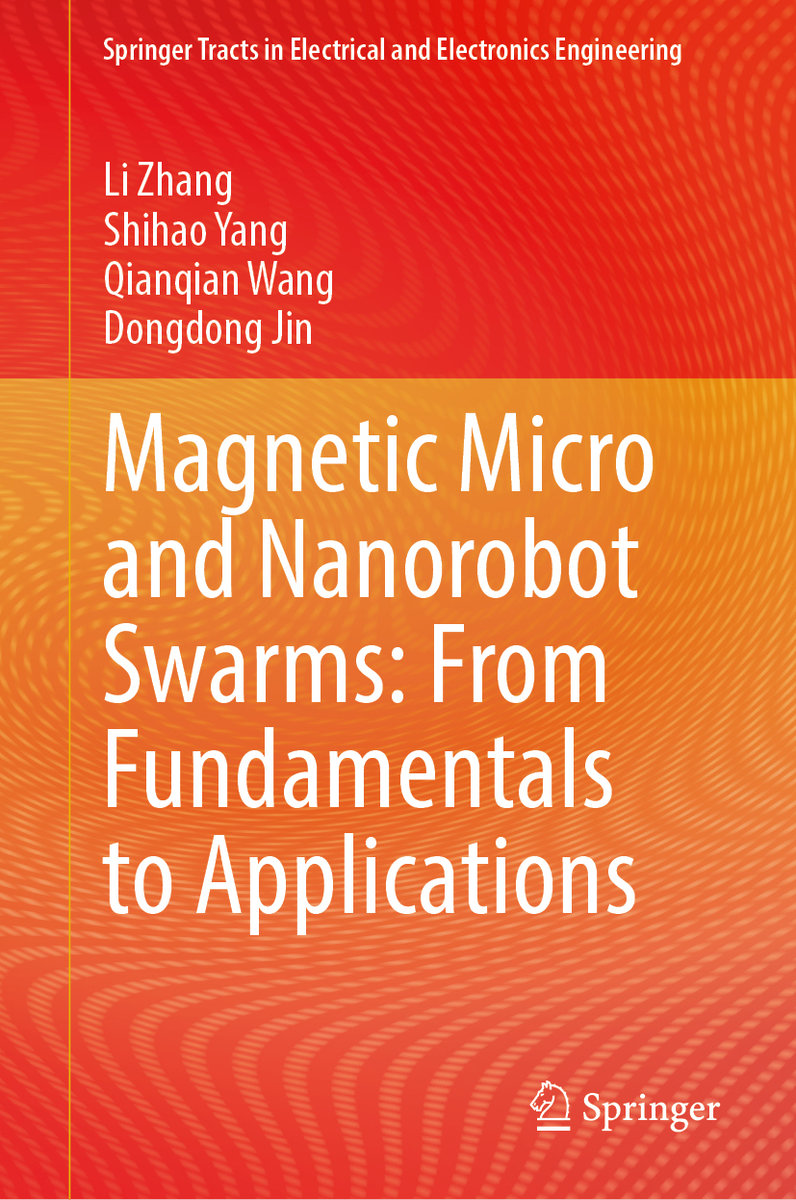Li ZhangLi Zhang is a Professor in the Department of Mechanical and Automation Engineering and a Professor by Courtesy in the Department of Surgery at The Chinese University of Hong Kong (CUHK). He is also a director of the Shenzhen Institutes of Advanced Technology (SIAT) of the Chinese Academy of Sciences (CAS) - CUHK Joint Laboratory of Robotics and Intelligent Systems. Before he joined CUHK as an Assistant Professor in 2012, he worked in Prof. Bradley Nelson´s group as a postdoc and then as a senior scientist and lecturer in the Institute of Robotics and Intelligent Systems (IRIS), Swiss Federal Institute of Technology (ETH) Zurich, Switzerland.Dr. Zhang´s main research interests include small-scale robotics and their applications for translational biomedicine. He has authored or co-authored over 300 publications. His research work on artificial bacterial flagella was indexed by the Guinness Book of World Records 2012 for the Most Advanced Mini Robot for Medical Use. And his research work on magnetic slime robot at CUHK was selected as Top 10 Innovation and Technology News in Hong Kong in 2022 . Dr. Zhang won the Hong Kong Research Grants Committee (RGC) Early Career Award in 2013, CUHK Young Researcher Award 2017, United College Early Career Research Excellence Merit Award 2018, CUHK Research Excellence Award 2019-20, and RGC Research Fellow Award 2021/22. He has also won several awards from IEEE international conferences. Dr. Zhang is an Outstanding Fellow of the Faculty of Engineering at CUHK and elected as a Fellow of IEEE (FIEEE), Royal Society of Chemistry (FRSC), and Asia-Pacific Artificial Intelligence Association (FAAIA). And he was appointed by IEEE NTC as a Distinguished Lecturer in 2020 and 2021.Shihao YangShihao Yang is currently working toward his Ph.D. degree in Prof. Li Zhang´s group in the Department of Mechanical and Automation Engineering at The Chinese University of Hong Kong. He received his Bachelor and Master degrees from the Harbin Institute of Technology, Harbin, China, in 2018 and 2020, respectively. His research interests include collective behaviors, biomedical applications, and fundamental mechanisms of micro-/nano-robots.Qianqian WangQianqian Wang is an Associate Professor at the School of Mechanical Engineering, Southeast University (SEU), Nanjing, China. He received his Ph.D. degree at The Chinese University of Hong Kong (CUHK) in 2020. Before joining SEU, he was a Postdoctoral Fellow in the Department of Mechanical and Automation Engineering at CUHK. He has published over 40 papers in internationally renowned journals, including Science Robotics, Science Advances, Nature Communications, ACS Nano, IEEE T-BME, IEEE T-ASE, IEEE T-MECH, and presented his work in IEEE ICRA, IROS, CASE .etc. His research focuses on the micro-/nano-robotics field, including collective behaviors of micro/nanorobots, medical imaging-guided delivery, micromanipulation, and dynamic self-assembly. He is also interested in integrating swarming micro/nanorobots with medical imaging systems for preclinical biomedical applications.Dongdong JinDongdong Jin is currently an Associate Professor in the School of Materials Science and Engineering, Harbin Institute of Technology, Shenzhen. He received his Bachelor and Master degrees from Zhejiang University, and Ph. D. degree from The Chinese University of Hong Kong (CUHK) in 2020. He then worked as a postdoctoral fellow in CUHK and joined Harbin Institute of Technology, Shenzhen in 2022. Dr. Jin´s research interests mainly focus on small-scale soft-matter robotics, including their fundamental mechanisms, fabrication and functionalization strategies, magnetic actuation and control, and biomedical applications. He has published over 40 papers, including Science Advances, Nature Communications, Nature Machine Intelligence, Accounts of Chemical Research, Advanced Materials, Materials Today, and ACS Nano. Several of his papers have been indexed as ESI highly cited papers, and have been highlighted in international press reports, such as C&EN, Chemistry World, and so on. He serves as a guest editor for Nanomaterials, and a reviewer for top journals and conferences, including ACS Nano, RA-L, and ICRA.



